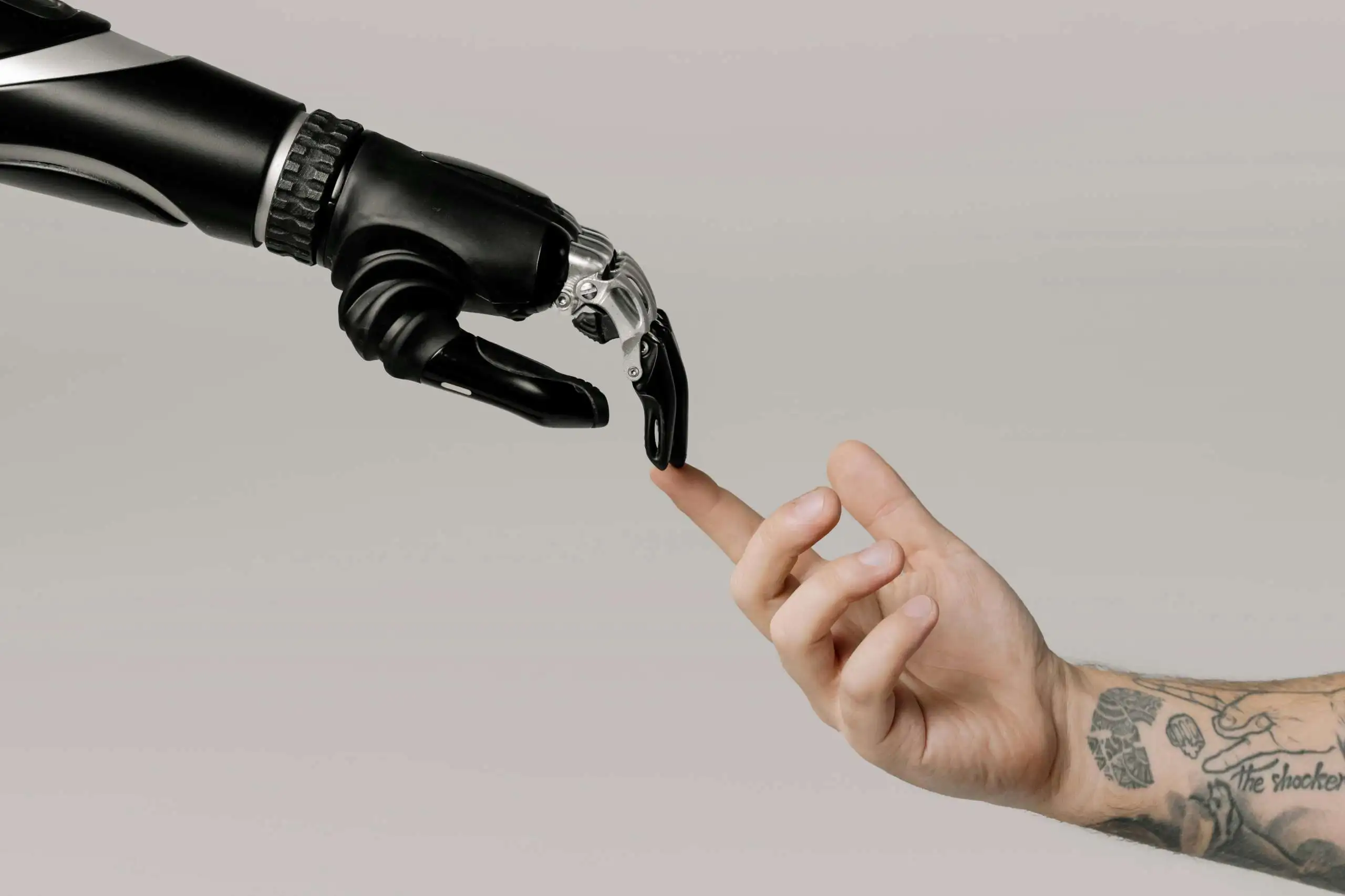
The technologies used for software will help continue to push the boundaries of innovation and efficiency. In this article, we will go over some of the essential technologies for the future of software development. A big portion of the discussion will involve artificial intelligence and how it will be a fundamental factor in how to future of software and its development will adapt and improve so that it can be incorporated in all spheres of software. From artificial intelligence to blockchain, all these technologies will help companies stay at the forefront of development and innovation as well as revolutionize the way software can be experienced by all.
Artificial intelligence and Machine Learning
Artificial intelligence and machine learning will become an even bigger cog in the current gears of software and its development. We have already seen the impacts of AI in software development with the use of Co-pilot which significantly assists in writing code. It’s potential to enhance efficiency in software development is amazing. With the use of algorithms and machine learning, AI will be able to read patterns in code and help improve debugging, code refactoring and performance. This will lead to faster project production to meet the needs of consumers in the ever-growing market. The collaborative opportunities for developers and AI is where the future lies. Developers will be able to leverage the AI’s powerful tools to increase optimization and gain guidance and assistance while working towards an innovative end goal and drill into unique problem-solving. AI will be able to handle repetitive coding tasks which means developers must learn to adapt continuously as development and AI learning keeps expanding. AI is going to be a core part of all future technologies. Data is such a key part of today’s world and AI ability to absorb and interpret that information in a timely manner is without question, far superior to humans. With all that data, AI can make informed decisions by calculating all the possible combinations to arrive at the best decision. Machine learning and deep learning are going to be the foundation for future business’s prosperity in multiple areas.
Cloud Computing
Cloud computing will continue to be the superior technology. The increased adoption of hybrid and multi-cloud environments will increase as organizations realize the potential of making use of multiple cloud providers. The benefits of multi-cloud environments are higher operational efficiency and cost optimization. As expected, AI and machine learning will continue to rise within the cloud-computing sphere to help further the capabilities of security and efficiency. Integrating with machine learning, systems will be able to automate important processes and improve self-maintainability. As cloud-computing grows, so will serverless computing. Serverless computing does not require a physical server. This alone makes a massive impact as it can help streamline the deployment process as well as provide cost efficient solutions to host applications and services.
Cybersecurity
Cybersecurity software will become even more crucial as software continues to expand. The industry will require more robust security measures and will incorporate AI-driven solutions to help identify, prevent, and mitigate potential cyber threats in real-time. Data and privacy protection methods will also be crucial to ensure trust and compliance with new AI-driven solutions and adaptive systems. The zero-trust security model is gaining momentum as it is becoming a better way to combat sophisticated cyber threats. This methodology assumes that all devices, networks, and users are potentially compromised. This means that the connection will require continuous authentication and verification for all access requests. With the use of zero-trust security, organizations can reduce the risk of data breaches and unauthorized access to sensitive information. As organizations become more reliant on third-party vendors and suppliers, supply chain security is becoming a critical issue. Cybercriminals are increasingly targeting the weakest links in the supply chain to gain access to sensitive information or disrupt operations. To combat this threat, organizations must prioritize supply chain security and ensure that all vendors and suppliers meet minimum security standards.
Blockchain
Blockchain is another emerging technology that is starting to show face in software development. Blockchain is known for its decentralized and secure nature, predominantly in the context of the currency, Bitcoin. Recently there was a report to show that there were 64 different use cases for blockchain usage across 200 different companies. This technology will allow developers to leverage the decentralized nature of blockchain to create applications and secure data storages. It will improve transparency and security within software.
Quantum computing
Quantum computing is still a relatively unknown and new field in the commercial space, but it is predicted to have promising impacts, even revolutionary, within the software industry. Quantum computers can be used to solve extremely complex problems at an exponential rate compared to the average computer. This computational power can be used to expand and further enhance optimization challenges for systems as well increase revenue, reduce costs and lower investments in infrastructure for businesses. Quantum computing will be used for cryptography and data analysis. It can be used to enhance security by using advanced algorithms to handle and safeguard weak encryption keys. This will help prevent attackers from gaining access to sensitive information.
Low-Code and No-Code Solutions
In terms of software development, low-code and no-code solutions will continue to improve which will allow individuals who have limited coding experience to create sophisticated applications in a timely manner. These programs will also enable developers to rapidly prototype ideas into realistic applications which can be deployed efficiently to the world. Solutions making use of this technology will be able to empower businesses to meet the market demands effectively.
Ethical and Responsible Software Development
As software continues its upwards journey, ethical and responsible considerations will become ever more important. With AI become a more integral part of software, necessary guidelines, and frameworks must be set in place to ensure fairness, accountability, and transparency. Developers and organizations will need to establish ethical standards and practices to build trust for AI-powered software. Accessibility and diversity will be another important factor to promote equal opportunities for all users.
As our world continues to evolve and expand, the future of software is exciting. How software development and AI collaboration will evolve is something to look forward too. AI machine and deep learning is going to be the monumental spear head for all technologies to progress and become as efficient, secure, and reliable as possible. With the emergence of AI features to assist software development, this is only the beginning. Cloud computing will continue to be an ever-expanding piece of software which continues to be a reliable form of scalability. Cyber threats are going to continue to evolve, as such, staying up to date in the latest and greatest strategies of cybersecurity is a must. Blockchain will allow for a new way to manage and create decentralized systems and applications. It will be even more important in financial systems to manage digital transactions securely and efficiently. Even though quantum computing is in its infancy, it is still a force to be reckoned with for the future of software. Within the next 5 years, quantum computing is predicted to be more commercially available to businesses.
With all this in mind, the ethical and responsible aspects must be maintained, adapted and restructure where necessary as we continue to enhance, evolve, and adapt our ways of thinking and workings to incorporate all these fundamental features into our software and its development.
Embracing AI into this next step of growth is going to be crucial as it will be the driving force to stay at the forefront of the new era of technological advancements and software development. In the coming years, human creativity intertwined with AI-powered systems will propel the software industry into an era of unparalleled growth and innovation. With such advancements, we can expect an increasingly interconnected world wherewith data driven decisions. By 2027, AI is predicted to handle up to 90% of development tasks, changing the way we will create software.

